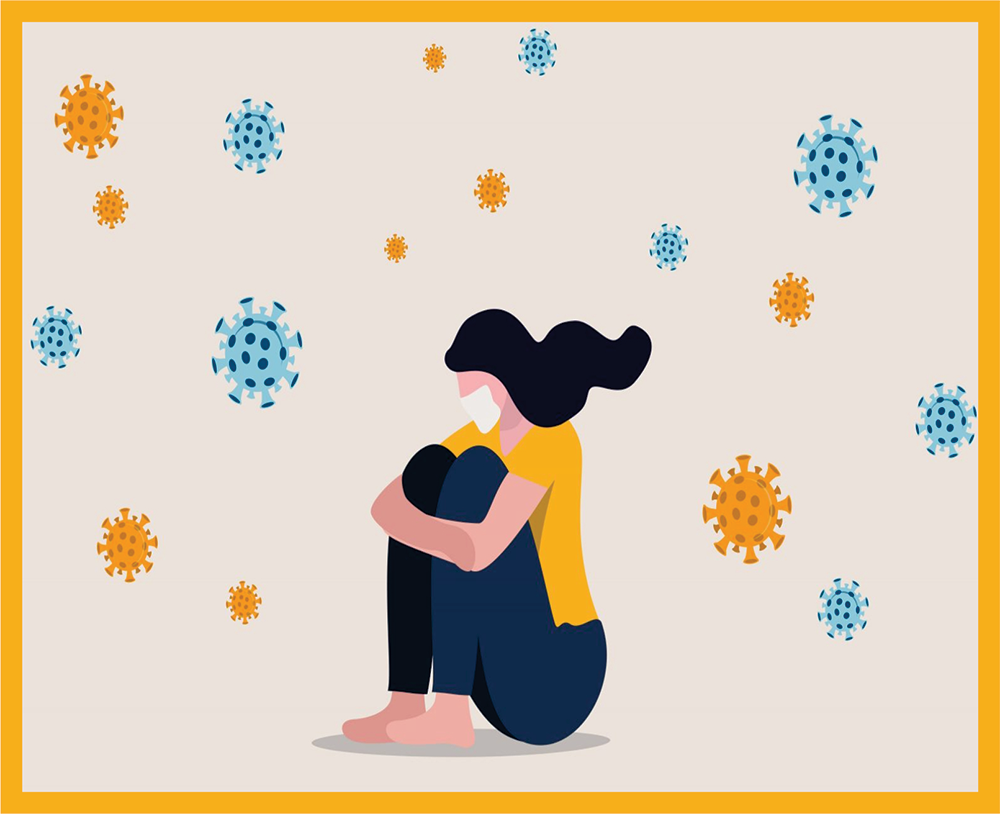After being diagnosed with the disease ,it is natural to also feel overwhelmed about the treatment ahead and what it will mean for your life. With care and support, you can manage this condition and recover from it.
How to cope with anxiety?
Dealing with stress
Stress is your body’s reaction to life changes and events, both good and bad. Stress can last just a few hours or it can be ongoing. Stress can play a major role in anxiety, so it is important to learn both how to cope with stress and how to think about it differently.
Some stress reduction techniques you may try are :
- Music therapy. This can include creating or listening to music that you enjoy and that inspires you.
- Mindfulness-based meditation. This involves being aware of your normal breaths, rather than trying to control your breathing. It can be done while sitting or walking.
- Centering prayer. This is a kind of meditation that involves focusing on a word, phrase, or sacred image that is meaningful to you and that brings you peace.
- Deep breathing. To do this, expand your stomach and inhale slowly through your nose. Hold your breath for 3–5 seconds. Then exhale slowly, allowing your stomach muscles to relax.
- Self-talk. This is a skill where you identify thought patterns that lead to anxiety reactions and correct those thoughts.
- Muscle relaxation. This involves tensing muscles then relaxing them.
- Choose a stress reduction technique that fits your lifestyle and personality. Stress reduction techniques take time and practice. Set aside 5–15 minutes a day to do them. Therapists can offer training in these techniques. The training may be covered by some insurance plans. Other things you can do to manage stress include:
- Keeping a stress diary. This can help you learn what triggers your stress and ways to control your response.
- Thinking about how you respond to certain situations. You may not be able to control everything, but you can control your reaction.
- Making time for activities that help you relax, and not feeling guilty about spending your time in this way.
- Therapy combined with coping and stress-reduction skills provides the best chance for successful treatment.
Medicines
Medicines can help ease symptoms. Medicines for anxiety include:
- Anti-anxiety drugs.
- Antidepressants.
Medicines may be used as the main treatment for anxiety disorder, along with therapy, or if other treatments are not working. Medicines should be prescribed by a health care provider.
Relationships
Relationships can play a big part in helping you recover. Try to spend more time connecting with trusted friends and family members. Consider going to couples counseling, taking family education classes, or going to family therapy. Therapy can help you and others better understand the condition.
How to recognize changes in your condition?
Everyone has a different response to treatment for anxiety. Recovery from anxiety happens when symptoms decrease and stop interfering with your daily activities at home or work. This may mean that you will start to:
- Have better concentration and focus.
- Sleep better.
- Be less irritable.
- Have more energy.
- Have improved memory.
It is important to recognize when your condition is getting worse. Contact your health care provider if your symptoms interfere with home or work and you do not feel like your condition is improving.
Where to find help and support:
You can get help and support from these sources:
- Self-help groups.
- Online and community organizations.
- A trusted spiritual leader.
- Couples
- Family education classes.
- Family therapy.
- Psychological counseling online or in person
Follow these instructions at home:
- Eat a healthy diet that includes plenty of vegetables, fruits, whole grains, low-fat dairy products, and lean protein. Do not eat a lot of foods that are high in solid fats, added sugars, or salt.
- Most adults should do the following:
- Exercise for at least 150 minutes each week. The exercise should increase your heart rate
- and make you sweat (moderate-intensity exercise).
- Strengthening exercises at least twice a week.
- Cut down on caffeine, tobacco, alcohol, and other potentially harmful substances.
- Get the right amount and quality of sleep. Most adults need 7–9 hours of sleep each night.
- Make choices that simplify your life.
- Take over-the-counter and prescription medicines only as told by your health care provider.
- Avoid caffeine, alcohol, and certain over-the-counter cold medicines. These may make you feel worse. Ask your pharmacist which medicines to avoid.
- Keep all follow-up visits as told by your health care provider. This is important.
Questions to ask your health care provider
- Would I benefit from therapy?
- How often should I follow up with a health care provider?
- How long do I need to take medicine?
- Are there any long-term side effects of my medicine?
- Are there any alternatives to taking medicine?
- Contact a health care provider if:
- You have a hard time staying focused or finishing daily tasks.
- You spend many hours a day feeling worried about everyday life.
- You become exhausted by worry.
- You start to have headaches, feel tense, or have nausea.
- You urinate more than normal.
- You have diarrhea.
Get help right away if:
- You have a racing heart and shortness of breath.
- You have thoughts of hurting yourself or others.
Summary
- Taking steps to deal with stress can help calm you.
- Medicines cannot cure anxiety disorders, but they can help ease symptoms.
- Family, friends, and partners can play a big part in helping you recover from an anxiety
This information is not intended to replace advice given to you by your health care provider. Make sure you discuss any questions you have with your health care provider.


